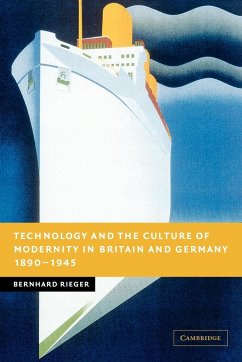This book examines the obsession for new technology that swept through Britain and Germany between 1890 and 1945. Drawing on a wide range of popular contemporary writings and pictorial material, it explains how, despite frequently feeling overwhelmed by innovations, Germans and Britons nurtured a long-lasting fascination for aviation, glamorous passenger liners and film as they lived through profound social transformations and two vicious wars. Public discussions about these 'modern wonders' were torn between fears of novel risks and cultural decay on the one hand, and passionate support generated by nationalism and social fantasies on the other. While the investigation focuses on tensions between technophobia and euphoria, the book also examines the relationship between responses to technology and the differing political cultures in Britain and Germany before and after 1933. This innovative study will prove invaluable reading to anyone interested in comparative cultural history as well as the history of technology.
Hinweis: Dieser Artikel kann nur an eine deutsche Lieferadresse ausgeliefert werden.
Hinweis: Dieser Artikel kann nur an eine deutsche Lieferadresse ausgeliefert werden.
Review of the hardback: 'Why not start this review with praise? Bernhard Rieger's book .... not only addresses a central theme in debates about modernity in the nineteenth and twentieth century; it is also fluently written and offers original insights for cultural historians and scholars interested in political questions. Finally, the author does not shy away from the big questions including National Socialism's modernity as well as the relationship between Nazi crimes and modern technology and science.' H-Soz-u-Kult








